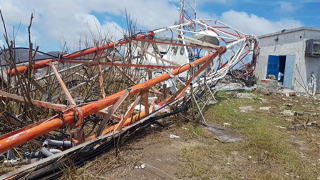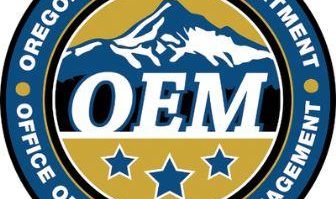
When I first heard broadcasters describing themselves as first informers I was uneasy. While acknowledging the truth of that phrase, I felt we were taking a term, “first responders,” that is highly valued in our society and trying to catch some of its reflected gloss. I worried about how law enforcement and other authorities, who are such important partners to radio and TV, would view broadcasting’s use of those words.
Over the years I’ve come to see how suitable the phrase is for radio and TV stations that take their public service roles seriously. Now a news item out of Illinois is a reminder that as long as broadcasters handle this correctly, there’s little cause for concern.
The Illinois Broadcasters Association reports that a “First Informer Broadcasters Act” passed the legislature unanimously and was headed to the governor’s desk. The bill ensures that broadcasters and cable operators will have emergency credentials to gain access to their operations; it also recognizes that broadcasters need access to deliver fuel for emergency generators in time of disaster.
As Radio World readers know, this is not the first such effort.
Dennis Lyle, president/CEO of the IBA, told me that then-Chairman John Chadwick pushed for this because he knew about Wisconsin’s credentialing program, coordinated by the Wisconsin Broadcasters Association, and thought it important for Illinois to have a similar opportunity. IBA also was following the Nevada Broadcasters Association, which lobbied not only for a credentialing program but to have it codified into state law. That happened in 2009.
“Once [Chadwick] learned of Nevada’s successful effort in securing legislation of a recognized emergency credentialing program for broadcasters, the decision was made to pursue a credentialing program through the legislative process here in Illinois,” Lyle said. Also playing a role were “the growing number of horror stories of broadcast-related access issues during times of emergencies and disasters of the past.”
To my knowledge, and assuming the governor signs it, Illinois will thus be only the second state with “first informer” legislation.
Few concerns
What feedback from the law enforcement community did the association hear? They were very supportive, Lyle said.
“In all honesty, the only real concern was whether or not we [wanted to] pursue asking for emergency-type lights to be placed on our station vehicles. The answer, of course, was ‘no.’ We simply want to make sure we have every opportunity to keep our stations on the air.”
As to terminology, “The subject came up ever so briefly in early discussions, but we resolved any concerns of confusion quickly by suggesting use of the term ‘first informers,’ a term already penned months earlier by the NAB in their many published documented stories of broadcasters’ critical role in past disasters and emergencies,” Lyle said.
“Nobody can argue that, whether a ‘first responder’ or ‘first informer.’ History shows both play a significant role in saving lives.”
IBA noted that the legislation faced no objection from the Illinois Emergency Management Agency, the Illinois Sheriff’s Association, the Illinois State Police or the City of Chicago. The lack of a single “no” vote in the legislature suggests that law enforcement raised no meaningful concerns, because when cops talk, lawmakers usually listen. It’s evident that IBA, like any effective state association, is adept at working with its interest groups and in anticipating concerns before they reach the public eye.
Now the state association will work with the Illinois Emergency Management Agency in designing a training curriculum that broadcast and cable personnel must complete before earning emergency credentials.
This is a legislative win for the IBA and another model for state associations to follow. It further is a topic of direct concern for Radio World readers, many of whom are the ones who get the call that the transmitter is down or the generator has konked out, and who might be confronted with a police officer in a wind-blown intersection who says, “Sorry, I can’t let you through.”
I’m interested in hearing from readers who have had experiences, good or bad, with such credentialing programs, and what others can learn from the experience. Write to me at [email protected].
(One engineer told the Wisconsin Broadcasters Association about an instance in which he responded to a transmitter problem late one evening and ended up being detained at gunpoint by police who believed he was the one who’d been stealing copper recently. It didn’t help that they found him with a screwdriver and a piece of equipment in his hands. A couple of phone calls to the station made things right but the engineer said he was “really glad” he had that emergency credential card. “It made them put the guns away.”)
The Illinois experience also highlights the good work that state broadcast associations can do and further demonstrates how associations can reinforce one other. Lyle said he’s grateful for the work of the National Alliance of State Broadcasters Associations for helping keep “our close family of state broadcasters association executives” informed and involved.
In hailing passage of the bill, he emphasized that local broadcasters have proved many times to be the firstmeans for first responders to disseminate emergency information to the public. For him, this bill was all about “allowing us to do what we do best during emergency situations: keeping the public informed.”






